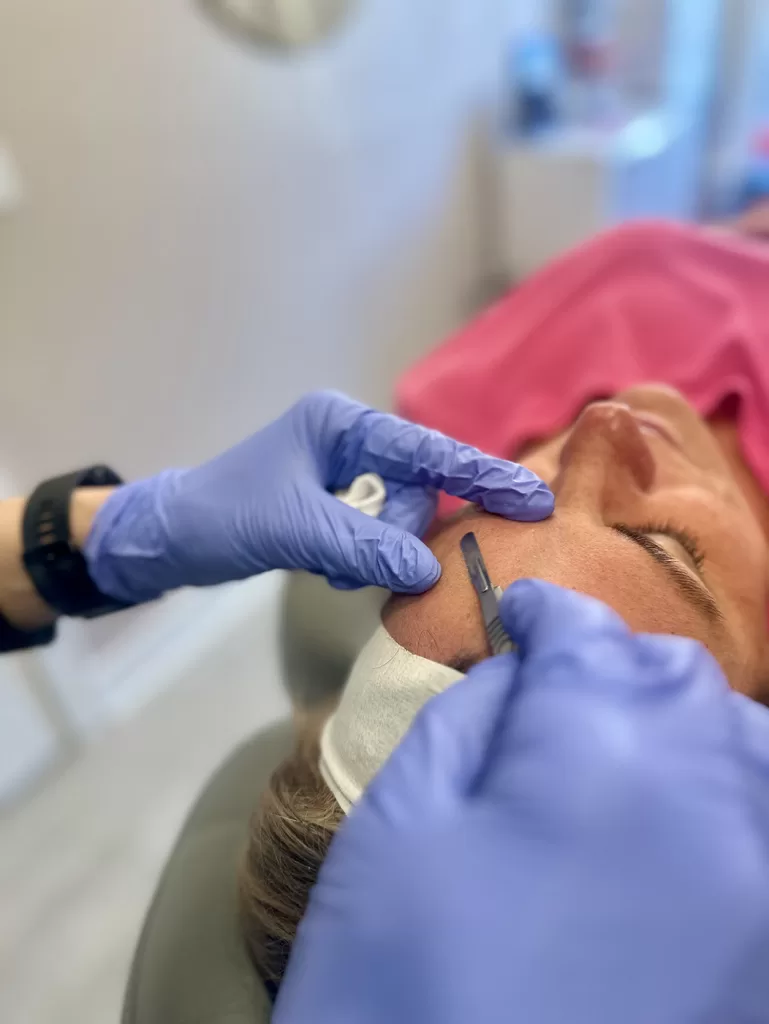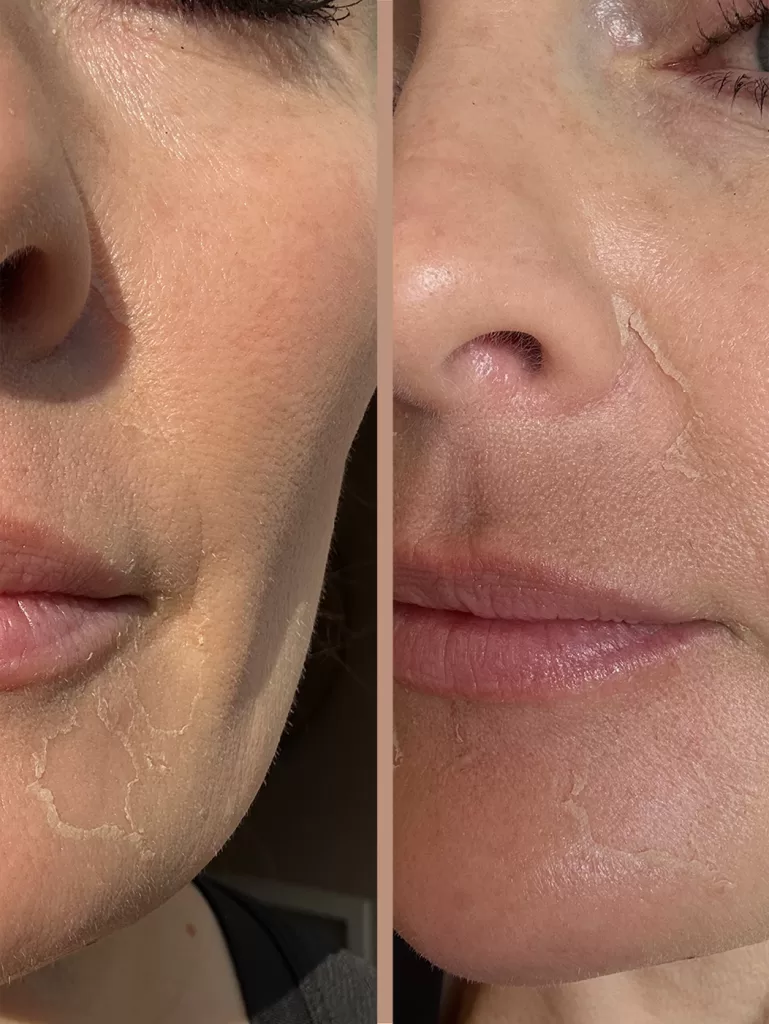Home › Skin School › Strategies for Optimizing Cell Turnover
Cell turnover is a natural process in which old, dead skin cells are shed and replaced by new, healthy cells. It’s an essential part of skin renewal and is influenced by factors such as age, genetics, and lifestyle.
How Cell Turnover Changes as we Age

Here’s how it changes as we age and how to combat its effects:
1. Younger Age (20s and Early 30s):
Cell Turnover: At a younger age, the cell turnover rate is relatively high. The skin sheds and regenerates quickly, leading to a fresh, radiant complexion.
Appearance: Skin appears smooth, firm, and vibrant.
Combat: To maintain youthful skin, focus on a basic skincare routine with regular cleansing, moisturizing, and sun protection.
2. Middle Age (Late 30s and 40s):
Cell Turnover: The rate of cell turnover starts to slow down. Dead skin cells may accumulate, leading to a dull complexion.
Appearance: Fine lines and wrinkles may become more noticeable. Skin may start to lose some of its natural luster.
Combat: Incorporate exfoliation (chemical or physical) into your skincare routine to help remove dead skin cells and stimulate cell turnover. Use products with retinol to promote collagen production.
3. Mature Age (50s and Beyond):
Cell Turnover: Cell turnover continues to decrease. Skin may appear thinner, and the natural exfoliation process becomes less efficient.
Appearance: Deeper wrinkles, age spots, and uneven skin texture can become more prominent.
Combat: Regular exfoliation remains crucial, along with the use of anti-aging skincare products. Consider professional treatments like a VI chemical peel or microneedling for more significant results. Stay well-hydrated and protect your skin from the sun.
Ways to Combat Slower Cell Turnover:
- Exfoliation: Regular exfoliation helps remove dead skin cells, allowing new ones to come to the surface. This can be done with chemical exfoliants (e.g., AHAs or BHAs) or physical exfoliation (scrubs).
- Retinoids: Products containing retinoids (like retinol) can promote collagen production and improve skin texture.
- Stay Hydrated: Proper hydration is crucial for skin health. Drink enough water and use moisturizers to maintain skin’s moisture balance.
- Sun Protection: Protect your skin from UV damage by using sunscreen daily. Sun exposure can accelerate the aging process.
- Professional Treatments: Consider treatments like SkinPen microneedling or chemical peels, offered by Direct Aesthetics.
Remember that genetics play a significant role in how your skin ages. Tailoring your skincare routine to your specific needs and consulting with a dermatologist can help you combat the effects of aging on cell turnover effectively.
Author
-

Valeri Rusco, PA-C, is a skilled physician assistant specializing in cosmetic dermatology. She holds a BS in Health Science from Grand Valley State University and a Masters in Physician Assistant Studies from Western Michigan University. Certified by the National Commission on the Certification of Physician Assistants, Valeri has extensive experience in sports medicine, general medicine, and pediatrics. With a focus on enhancing natural beauty, she is dedicated to mastering advanced techniques in facial rejuvenation and aesthetic procedures, empowering her patients to achieve their aesthetic goals with confidence.
View all posts


